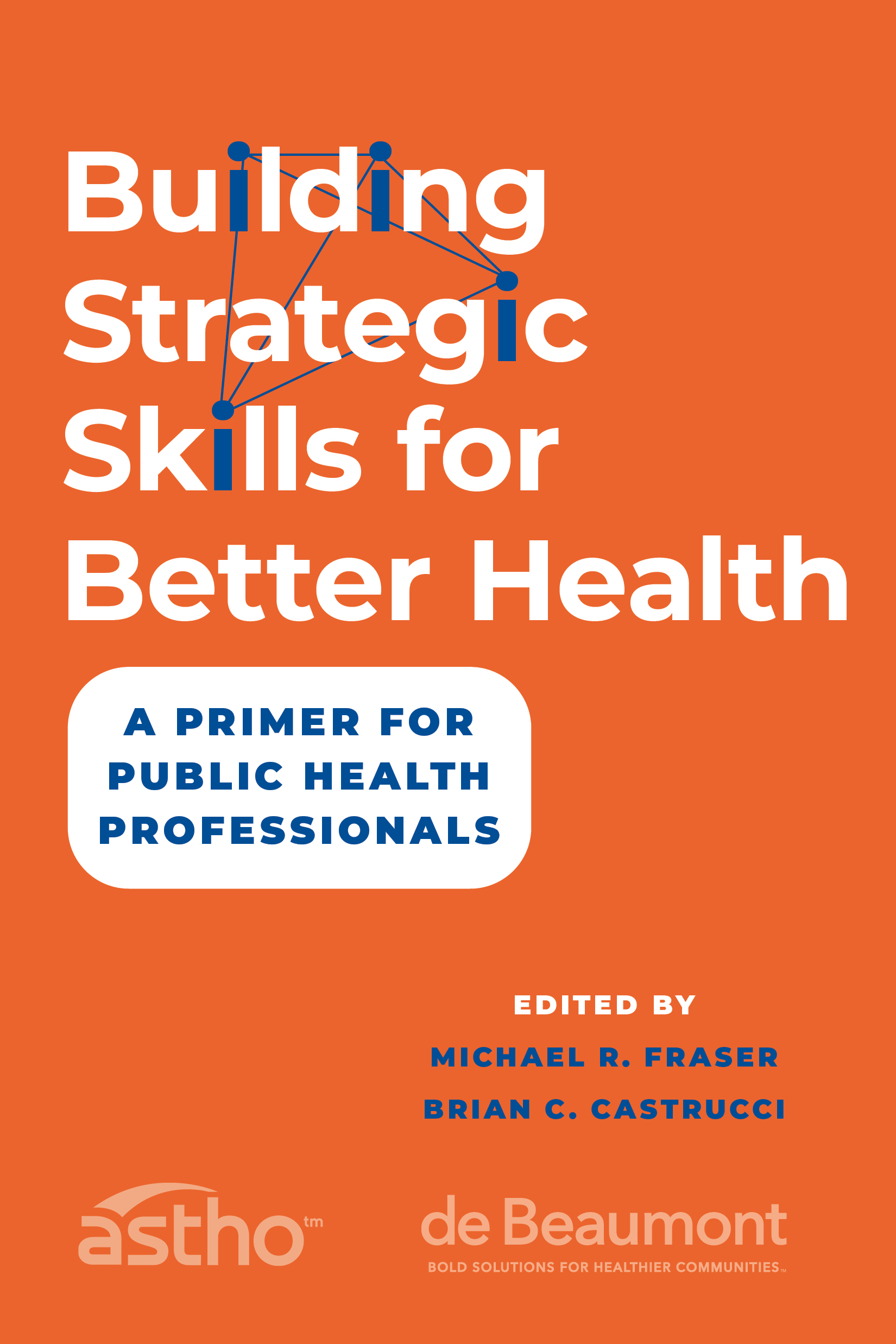
Subject matter expertise is essential, and we can’t do our work without it. But over the years, I’ve learned that strategic skills are just as important if you want to truly advance the health of communities.
This isn’t something we’ve talked about much in public health. By and large, public health professionals are exceptional and well-trained scientists, and they rightly take pride in their areas of specialty. But to take the next step and unlock the power of our science, we also need to be able to develop organizations, lead teams, manage change, and work within communities.
That’s why de Beaumont partnered with the Association of State and Territorial Health Officials (ASTHO) to write a new book, Building Strategic Skills for Better Health: A Primer for Public Health Professionals. The book defines and explains nine critical skills that you may not have learned in your MPH classes, but are absolutely critical to advancing the nation’s health. I co-edited the book with Michael R. Fraser, ASTHO’s CEO, and as Mike said, “To improve health and respond to public health emergencies in the future, we need a lot more than technical acumen. Public health professionals need to be able to thrive in their area of technical specialty and lead and manage strategically across their organizations to help their organizations grow and the communities they serve be healthier.”
The book builds upon the Strategic Skills framework and core competencies that we and the National Consortium for Public Health Workforce Development released in 2017, which names nine strategic skills: Change management; Community engagement; Cross-sectoral partnerships; Data-based decision-making; Effective communication; Justice, equity, diversity, and inclusion; Policy engagement; Resource management; and Systems and strategic thinking.
Focused volumes on Community Engagement and Policy Engagement were published in conjunction with APHA Press earlier this year.
Unlike other books about strategy and management, Building Strategic Skills for Better Health was written by public health practitioners for public health practitioners, and the examples use real-world scenarios. While leadership is an important theme, the insights are relevant to practitioners beyond those with “chief,” “lead,” or “executive” in their title; I firmly believe that leadership isn’t something you hire to but something you are, whatever position you hold. Most public health positions require leadership skills — no matter your position, I think you’ll find this book helpful to your professional growth.
Building Strategic Skills for Better Health: A Primer for Public Health Professionals offers a dynamic guide for implementing and developing leadership, management, and advocacy skills to transform public health work. Authored by experienced public health leaders, this primer defines and explains nine essential strategic skills for effective public health practice across specialties. The book is now available for purchase via Oxford University Press.




